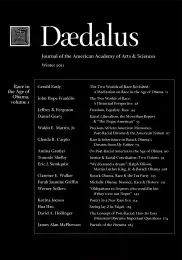On Post-Racial America in the Age of Obama
Amina Gautier reflects on her childhood tendency to ask when, not if, there would be a black president. Growing up in the post-civil rights era, she was influenced by knowledge of earlier presidential bids by African Americans as well as references to the idea of a black president in popular culture, including television programs of the 1970s and 1980s that often saw adult characters project the ability to run for office onto black youth. However, Gautier cautions against conflating Barack Obama's historic election to president with the beginning of a “post-racial” era. She uses a personal experience of racial insensitivity to observe the distance we have yet to go before we are truly post-anything.
I had the chance to travel to Washington, D.C., to witness the moment when U.S. Senator Barack Obama became President Barack Obama. Regrettably, I passed up that opportunity to attend the inauguration of our forty-fourth president, a chance many I know would have immediately leaped upon. The offer to attend dropped into my lap at almost the ninth hour and was tenuous at best, resting on the whims of three people (only one of whom I knew) and on a road trip from the Midwest to the East Coast. Furthermore, my native New Yorker’s sensibility–ever-present despite having lived away from home and in numerous other cities for more than a decade–argued against the idea of joining record-breaking numbers in a D.C. crowd. Real New Yorkers leave the crowds, parades, and New Year’s Eve ball-drop to tourists and New York transplants, knowing that monumental events lose nothing by virtue of being televised and that watching a televised parade or national observance is much safer than subjecting oneself to a crowd’s tramplers and snipers. Indeed, despite being the nation’s capital, Washington, D.C., has never struck me as particularly safe. (There is, after all, a reason the Washington Bullets changed their name to the Washington Wizards.)
I did not share with many others I knew the same level of enthusiasm that would have compelled me to ride halfway across the country in a car with one friend and two strangers only to arrive and stand outside for hours on a blustery cold day. I would . . .
